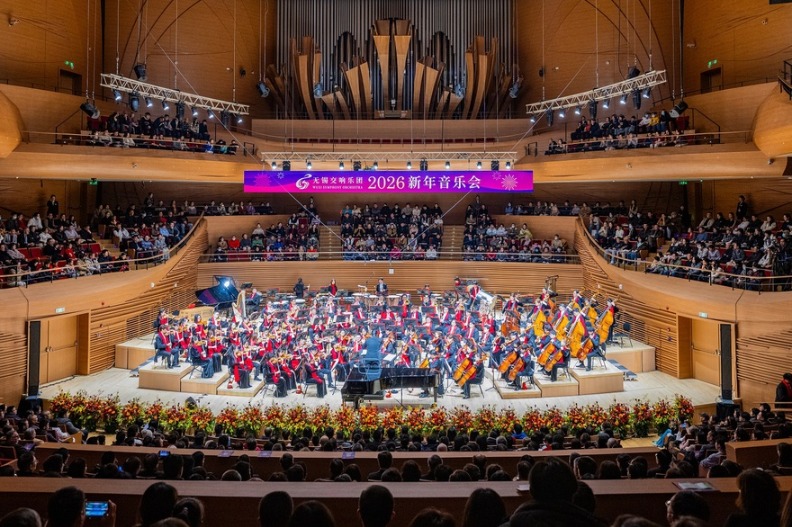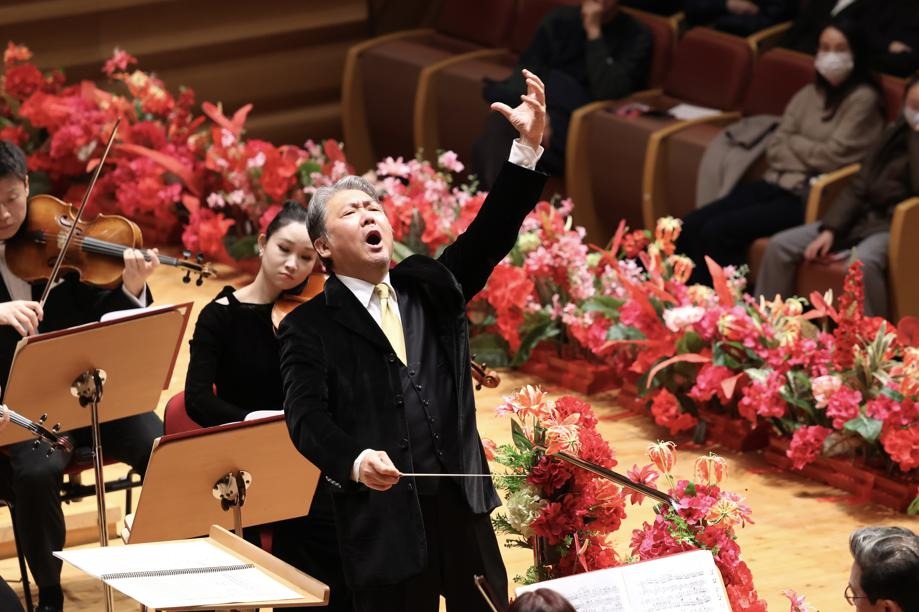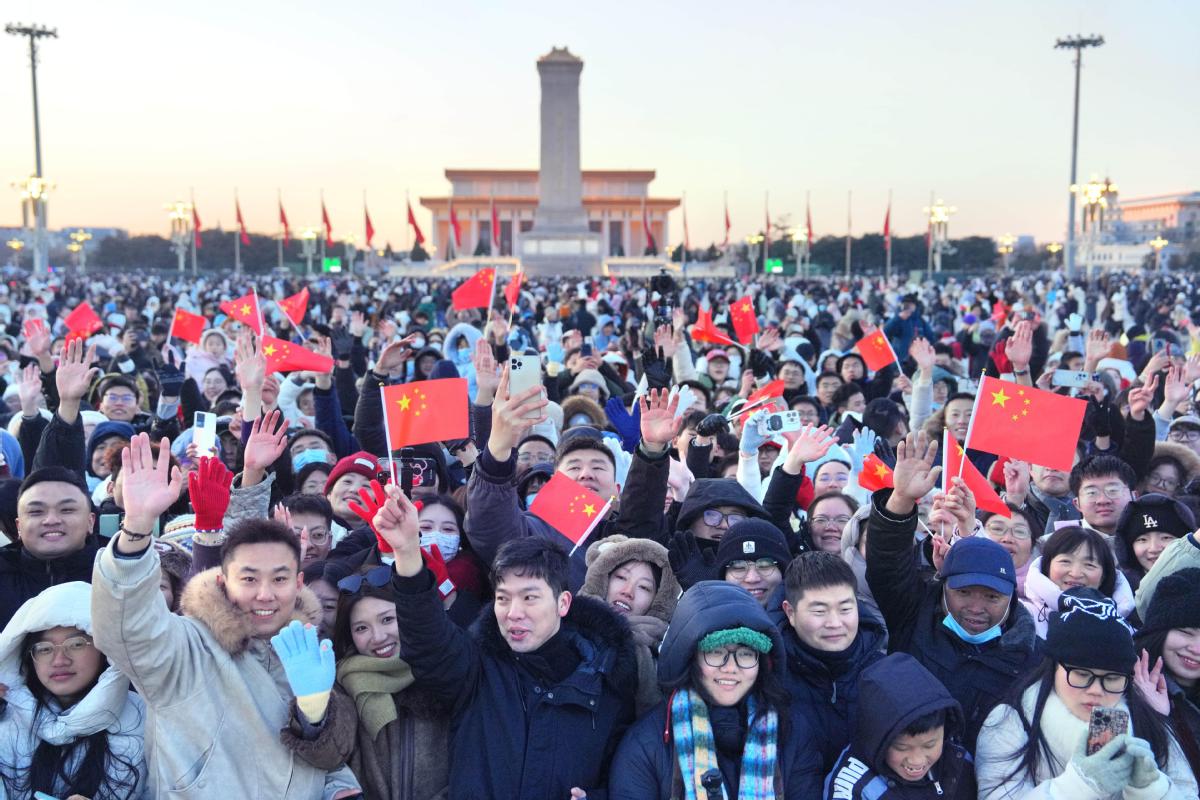Hong Kong, Macao set to be hub for talent
Influx of professionals to spur industry growth, propel high-quality development, experts say

Experts from Hong Kong and Macao said the central government's new directive to transform the two special administrative regions into international hubs for top-tier talent will fulfill local demand for talent while propelling the country's high-quality development.
To achieve this objective, both regions should leverage their distinct advantages and policy incentives to attract and retain external talent, while strengthening mechanisms to nurture local talent, they said.
The resolution on further deepening reform comprehensively to advance Chinese modernization, which was adopted on July 18 at the third plenary session of the 20th Central Committee of the Communist Party of China, voiced support for Hong Kong and Macao to build themselves into international hubs for high-caliber talent.
Luo Yong, chairman of the Hong Kong Quality and Talent Migrants Association, said the resolution marks the first explicit directive regarding the SAR's talent policies from the central authorities, demonstrating Hong Kong's significant importance to national development.
Daniel Lee Ho-wah, president of the Hong Kong People Management Association, a professional human resources management body, said that Hong Kong will be a direct beneficiary of the resolution.
Official data shows that the city's population is projected to reach 8.19 million by mid-2046, with a third being aged 65 and above.
Building Hong Kong as an international talent hub will help address the city's challenges related to its aging population and labor shortage.
The welcome influx of talent will also spur the growth of various industries in Hong Kong, upgrade its economic structure, and attract more investments, Lee said.
Lau Siu-kai, a consultant with the Beijing-based think tank Chinese Association of Hong Kong and Macao Studies, believes that professionals attracted to Hong Kong will leverage the city as a gateway to the Chinese mainland and overseas.
They will not only contribute to the development of Hong Kong and the mainland but also foster a positive global narrative of the country during their movement, Lau added.
Hence, this decision will eventually contribute to the nation as a whole, he said.
Government support
The Hong Kong SAR government has ramped up talent-attraction initiatives since late 2022. As of July 15, the city had received more than 320,000 applications through various talent programs, of which 200,000 had been approved, and more than 130,000 had arrived in Hong Kong.
Luo of the Hong Kong Quality and Talent Migrants Association said the "one country, two systems "principle has always been a magnet for global professionals, and the city should further leverage this advantage to enhance its appeal. Considering Hong Kong's relatively narrow industry scope, the city needs to collaborate with the mainland cities in the Guangdong-Hong Kong-Macao Greater Bay Area on talent policies.
Luo's association has been hosting talent summits, and fostering exchanges with high-end talent organizations and international talent groups. He noted that professionals, whether from Hong Kong, the mainland or overseas, share a common interest in exploring growth prospects in the city, especially for foreigners who wish to tap the mainland opportunities through Hong Kong.
Luo emphasized the magnetic effect of career-advancement prospects on high-caliber professionals, suggesting that providing such opportunities is key to attracting the world's best.
Shang Hailong, a lawmaker and chairman of the Hong Kong Top Talent Services Association, proposed targeted scholarship programs to entice people from countries involved in the Belt and Road Initiative to study in Hong Kong.
Hong Kong should not just attract professionals — it also needs to retain them, Shang said.
As the city prepares for a wave of visa renewals in the coming years, the government could use the opportunity to address the practical challenges faced by newcomers.
Lee of the Hong Kong People Management Association, in particular, underlined the need to address expatriates' concerns in finding suitable accommodations for their families and the right schools for their children.
Lee suggested that the government collaborate with international or English-language schools to reserve spots for children of senior professionals. Additionally, enterprises can help provide them with affordable transitional housing.
He stressed that coming to Hong Kong is not just an individual decision by the professionals, but a family matter. Resolving livelihood challenges is essential to encouraging them to relocate to the city, Lee said.
Zhou Ping, director of Macao One Belt, One Road Research Center at the City University of Macao, said the plenary session resolution has provided crucial guidance for advancing Macao's talent framework.
He said Macao's emphasis on new industries in recent years boasts several advantages distinct from those of Hong Kong in attracting talent. Macao's "1+4" industry diversification strategy, unveiled in 2023, involves promoting the growth of one key sector — tourism and leisure — alongside the advancement of four industries: big health, modern finance, high technology, as well as conventions, exhibitions, culture and sports.
This strategic approach opens doors for experts to swiftly assume leadership positions within these industries, Zhou said.
Wong Kam-fai, a legislator and an associate dean of the Faculty of Engineering at the Chinese University of Hong Kong, said that fostering local talent is critical for the long-term development of the city's talent base.
Despite Hong Kong's established prowess in finance, innovation and technology, trade, and aviation, there remains a shortage of skilled man power in some applied technology disciplines such as information technology, electrical and mechanical engineering, maritime engineering and logistics, he said.
To address this gap, Wong proposed strengthening cooperation with the city of Shenzhen in Guangdong province in training talents with applied skills.
Hong Kong can establish vocational training colleges on the mainland, offering programs with mutually recognized qualifications. Graduates from these colleges can be allowed to work in Hong Kong, becoming a force in the city's talent pool, Wong said.
The government could also construct primary and secondary boarding schools, offering mainland and international curricula that cater to the needs of families from Shenzhen and Hong Kong. These institutions would serve as incubators for Hong Kong's future professionals.
Addressing the challenges in fostering innovation and technology talent, Wong suggested the government establish a dedicated committee focused on this area. This committee should help the Education Bureau of the Hong Kong SAR create and update the innovation and technology program framework, and systematically develop various professionals required by relevant industries.
Zhou from the City University of Macao agreed on the importance of local talent development. He said the Macao SAR government should offer greater support to the region's 10 higher education institutions, with a focus on disciplines integral to the city's future growth.
Furthermore, Zhou encouraged these institutions to consider establishing branches in Zhuhai's Hengqin island, capitalizing on the synergy effect of the whole GBA.
Wu Xinyu contributed to the story
oasishu@chinadailyhk.com



































